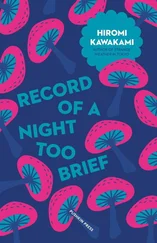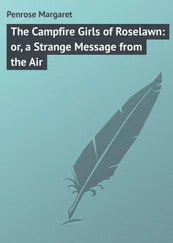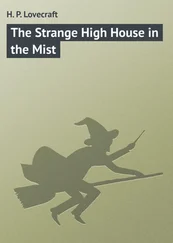“They catch the ayu in a nearby river. And the local vegetables are also great,” Kojima said leisurely. Even though he knew I was hedging, he didn’t seem at all concerned; rather, his manner was calm and unhurried.
Kojima went on with his explanation: “Just-picked cucumbers, lightly chopped and dressed with pickled plums. Fresh eggplant, thinly sliced, sautéed, and then drizzled with gingered soy sauce. Cabbage pickled in rice-bran paste. Everything is just like home-cooked food, but the freshness of the vegetables really comes through.
“They’re grown and harvested in a field nearby, and prepared within the same day. The miso and soy sauce, they happen to come from a local storehouse too. I think a gourmand like you, Omachi, would really appreciate it,” Kojima laughed.
I liked the sound of Kojima’s laughter. I was on the verge of saying, Why not, let’s go, but then I didn’t. Ayu fish, huh. Fresh vegetables, I muttered instead, noncommittally.
“Let me know if you decide you want to go. Then I can make a quick reservation,” he said casually as he ordered another round.
We were sitting at the counter at Bar Maeda. This was maybe the fifth time Kojima and I had gotten together like this. A small plate was piled with sunflower seeds, and Kojima was munching away. I had snatched a few seeds myself and crunched on them too. Maeda quietly set a Four Roses bourbon and soda in front of Kojima.
Whenever Kojima and I came to Bar Maeda, I always had the feeling that I didn’t belong in a place like this. With its jazz standards playing low, its counter polished to a high gleam, its spotlessly clean glasses, the faint scent of tobacco smoke, and the perfect hum of activity—everything was flawless. It made me feel ill at ease.
“These sunflower seeds are good,” I said, taking a couple more. Kojima was drinking his bourbon and soda at a leisurely pace. I took a small sip from the glass in front of me. A flawless martini.
I set down my drink with a sigh. The glass was cold, its surface ever so slightly frosted over.
“THE RAINY SEASON is almost here,” Sensei said.
Right, Satoru replied. His nephew nodded too. The young guy was now a regular fixture at the bar.
Sensei turned toward him now to place his order, “ Ayu fish.” The young man replied, “Yessir,” and withdrew to the back. The aroma of broiling fish soon wafted out.
“Sensei, do you like ayu ?” I asked.
“I enjoy most fish, in general. Both saltwater fish and freshwater fish,” Sensei answered.
“Really? What about ayu fish, then?”
Sensei looked me in the face. Tsukiko, what is it with you and ayu ? he asked, still staring at me.
Nothing in particular, I hastily replied, looking down. Sensei kept his eye on me for a bit longer, his head tilted to the side.
The young guy came out from the back carrying a plate with the ayu . It was served with a sour knotweed sauce.
“The green of the knotweed complements the fresh air during the rainy season,” Sensei murmured as he gazed at the fish.
Satoru laughed and said, Sensei, how poetic!
Sensei replied, It’s not poetic, it’s simply my impression. Using his chopsticks, he carefully broke the ayu fish into pieces and began to eat. Sensei’s manner of eating was always impeccable.
“Sensei, since you like ayu so much, why not go to a hot-spring hotel or someplace to eat it?” I asked.
Sensei raised his eyebrows. “I don’t need to go anywhere specifically to eat it,” he replied, lowering his eyebrows to their normal position. “What’s the matter, Tsukiko? You seem rather peculiar today, indeed.”
Takashi Kojima invited me on a trip, I almost blurted out. But of course I didn’t. Sensei was drinking his saké at a perfectly reasonable pace. Drinking and then pausing for a spell. He would take another sip, then pause again. I, on the other hand, was draining my cup faster than usual. Pouring and drinking, drinking then pouring. I was already on my third bottle of saké.
“Tsukiko, has something happened?” Sensei asked.
Reflexively I shook my head. Nothing has happened. Nothing, I said. There’s no reason to think something has happened, is there?
“If nothing has happened, then there should be no need to deny it so vehemently.” The ayu fish was already no more than just bones. Sensei nudged the delicate skeleton with his chopsticks. It had been picked perfectly clean. The ayu was delicious, Sensei said to Satoru.
Thanks, Satoru replied. I hurried to drain my cup. Sensei looked at the empty cup in my hand with a reproachful expression.
You’ve had enough for tonight, Tsukiko, he said gently.
Please leave me alone, I replied, filling my cup with saké. I drank that down in one gulp, having now emptied the third bottle.
“One more!” I ordered another from Satoru. Saké, he shouted curtly toward the back.
Tsukiko, Sensei said as he peered at me, but I turned my face away. “Well, you can’t take your order back now, but you mustn’t drink the whole thing,” he said in an unusually stern tone. As he spoke the words, he tapped me on the shoulder.
Yes, I replied quietly. The alcohol had suddenly hit me. Sensei, could you please tap me again? I said, the words a jumble in my mouth.
Tsukiko, you are like a spoiled child tonight, he laughed, lightly tapping my shoulder several times.
That’s because I am a spoiled child. Always have been, I said, reaching out to touch the ayu bones on Sensei’s plate. The soft bones were pliant. Sensei removed his hand from my shoulder and slowly brought his cup to his lips. For a moment I leaned up against Sensei. Then I quickly moved away. Whether or not Sensei noticed me leaning against him, he kept his cup at his mouth and said not a word.
WHEN I CAME to, I was in Sensei’s house.
I seemed to be lying directly on the floor in the tatami room. Above my head was the low dining table, and right in front of me I could see Sensei’s legs. “Oh,” I said as I sat up.
“You’re awake?” Sensei said. The rain shutters as well as the doors were open. The night air was streaming into the room. It was a little cold. I could faintly make out the moon in the sky, swathed in a thick halo.
“Was I sleeping?” I asked.
“You were sleeping,” Sensei laughed. “You had quite a good rest there.”
I looked at the clock. It was just past twelve midnight.
“I didn’t sleep that much, did I? It was about an hour.”
“To sleep for an hour at someone else’s house is plenty,” Sensei laughed again. His face was redder than usual. I wondered if he had been drinking the whole time I was asleep.
What am I doing here? I asked.
Sensei opened his eyes wide. You don’t remember? The way you carried on, I want to go to your house, I want to go!?
Did I really? I said, lying back down on the tatami. I could feel the straw weave on my cheek. My tangled hair fanned out over the mat. I lay there, watching the night clouds roll by. I didn’t want to go on a trip with Kojima. The thought came clearly to mind. With the distinct feeling of the tatami weave on my cheek, I thought about the vague sense of discomfort I experienced when I was with Kojima—it was faint yet inconsolable.
“I’ll have tatami marks here,” I said, still sprawled on the floor.
“Where?” Sensei asked. He had come around the table to my side.
“Ah, I see. You’re really pressed up against it, aren’t you?” Sensei said, lightly touching my cheek. His fingers were cold. Sensei seemed bigger to me. Probably because I was looking up at him from below.
“Your cheek is warm, Tsukiko.”
He was still touching my cheek. The clouds were moving fast. At times the moon would be completely hidden behind the clouds, then the next moment part of it would appear again.
Читать дальше
![Хироми Каваками Strange Weather in Tokyo [= The Briefcase] обложка книги](/books/29150/hiromi-kavakami-strange-weather-in-tokyo-the-br-cover.webp)










